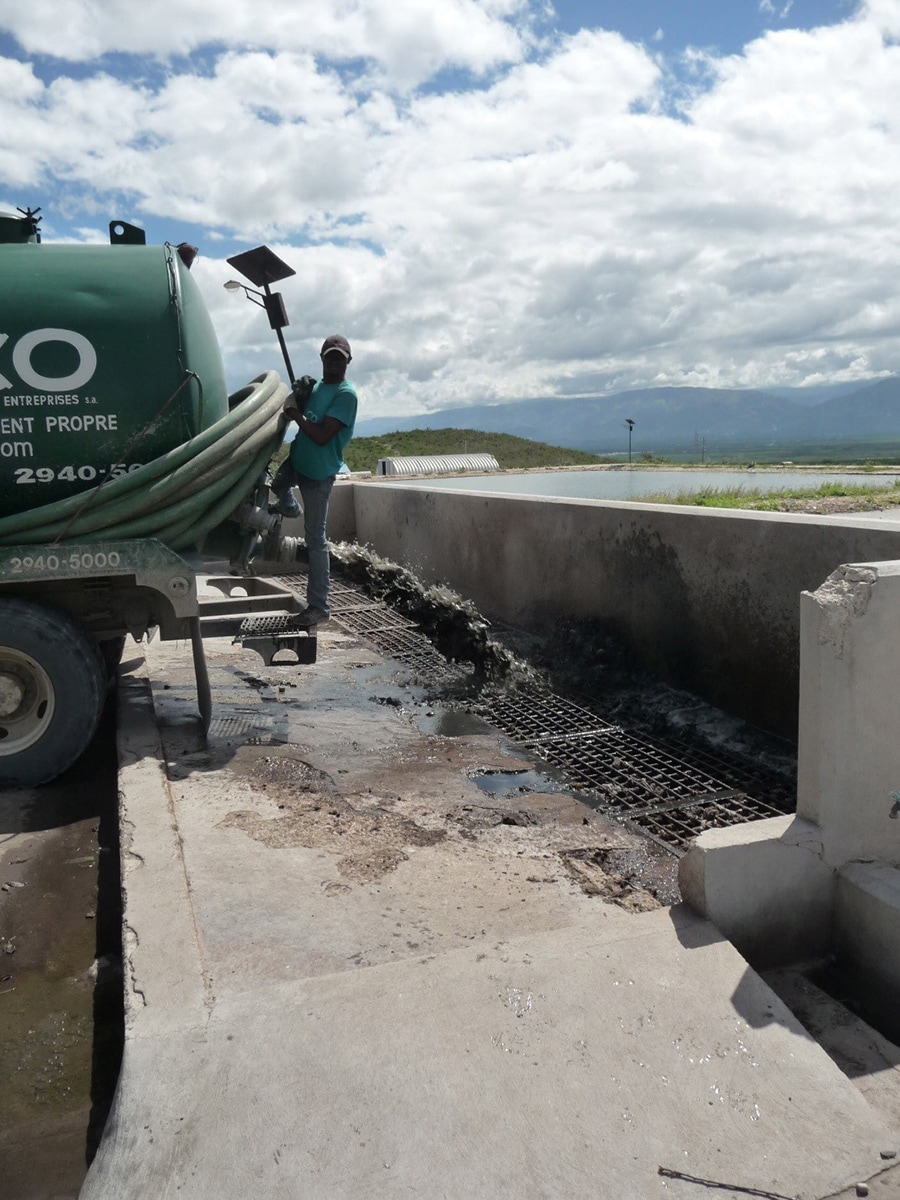Management of Fecal Waste
Sewer Systems and Wastewater
Community wastewater management and adequate sewer systems play important roles in sanitation and disease prevention. Wastewater with fecal waste (or poop) can contaminate the local environment and drinking water supply, thereby increasing the risk of disease transmission. To improve health, it is vital to develop a system to manage community wastewater and sewage.

Wastewater testing has been used successfully as a method for early detection of diseases such as polio and COVID-19.
Fecal Sludge Management
In many countries, sewer systems are not connected to piped networks, and proper wastewater management is not practiced due to lack of resources, poor infrastructure, available technology, and space.
Without proper management, onsite sanitation facilities (such as pit latrines) can fill up, and the fecal waste (called fecal sludge) must be emptied by manual or motorized means and physically transported to a treatment facility1.
These systems present new challenges in protecting worker safety, treating the waste, and ensuring that the costs of wastewater treatment are feasible for households. Workers emptying fecal waste must ensure proper use of personal protective equipment (PPE) to protect their health. Fecal sludge requires specific treatment plants designed to handle the higher total solids content (relative to wastewater in wastewater treatment plants). The costs of emptying and treating fecal sludge may require new community models to ensure those costs are shared and manageable.

Fecal sludge dumping at the Morne a Cabri wastewater stabilization pond CDC evaluated in Haiti.